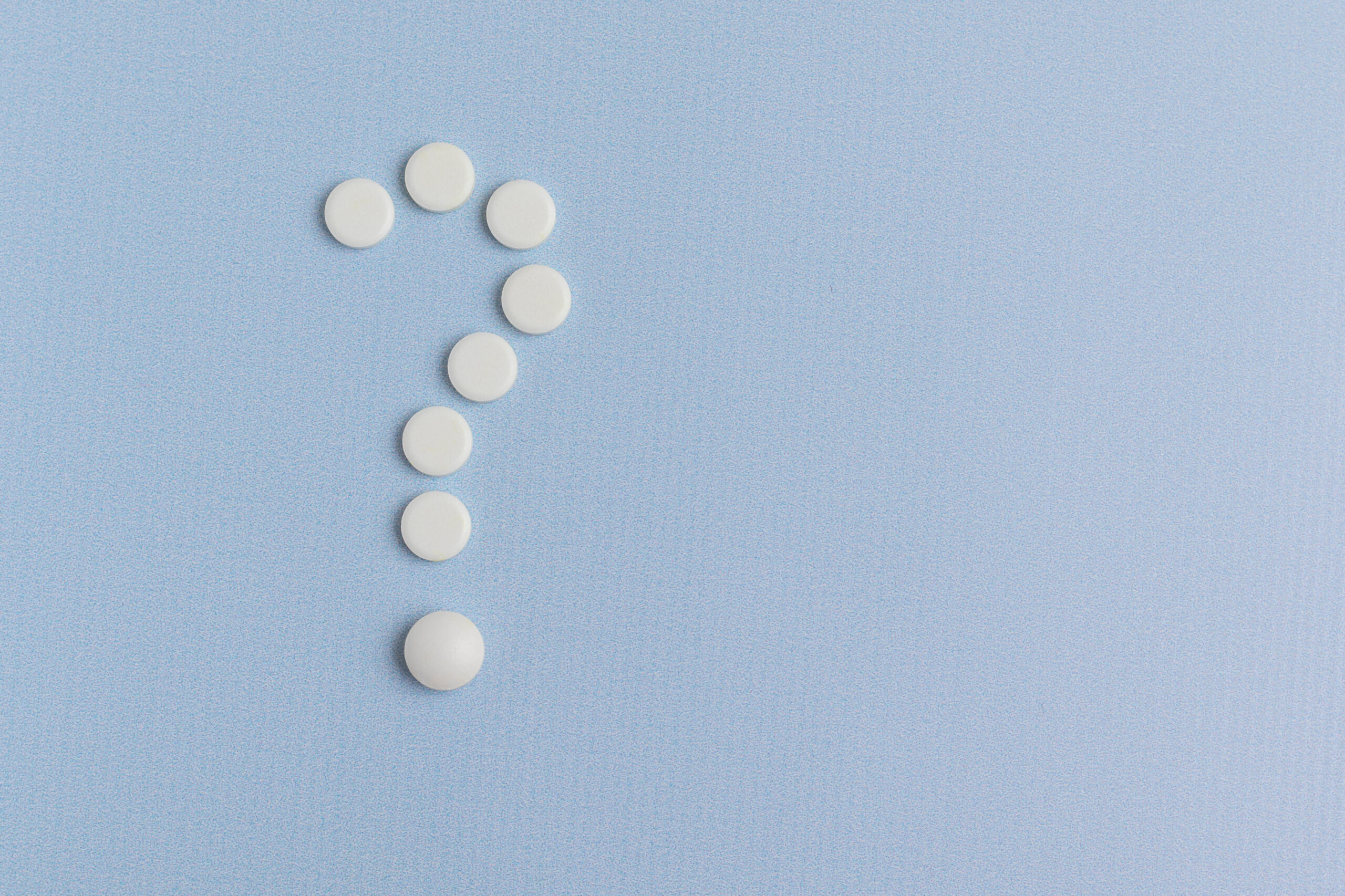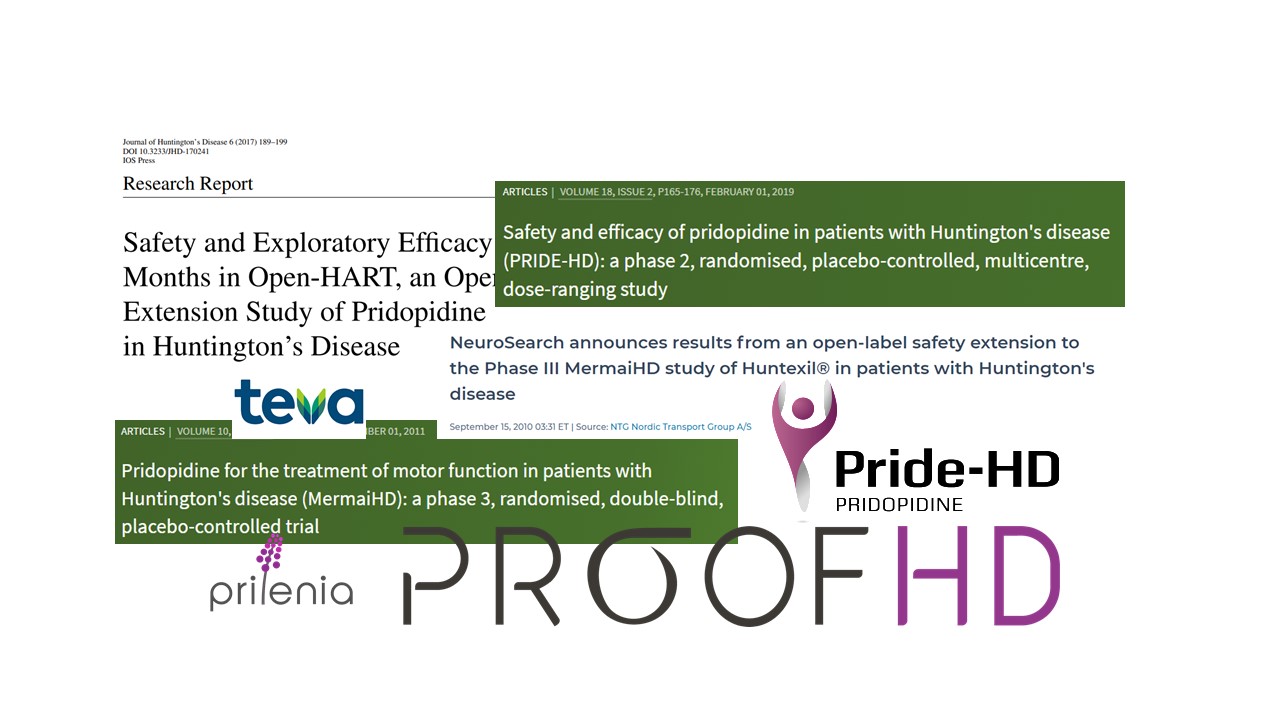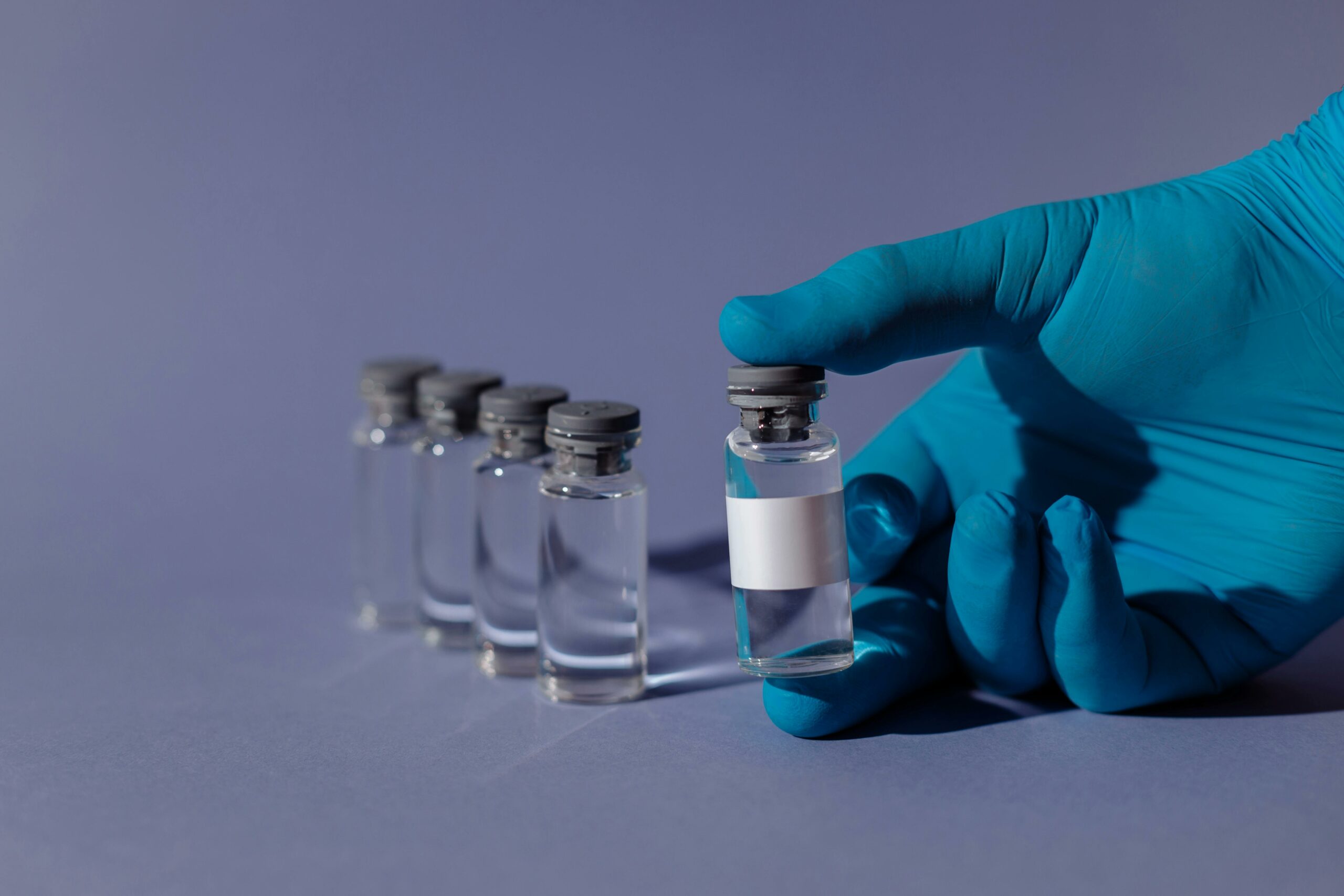
PROOF-HD study of pridopidine ends with negative result
The phase 3 trial missed its primary endpoint of slowing loss of function in Huntington’s disease

Top line results of the PROOF-HD study, run by Prilenia Therapeutics and testing pridopidine, have been announced at the American Academy of Neurology convention. Sadly the trial outcome was negative. We recap the history of pridopidine in Huntington’s disease, review the trial results, and figure out where this disappointing result leaves us.
The drug: pridopidine
Pridopidine has been under investigation as a possible treatment for Huntington’s disease since the early 2000s and has a long and colourful history. It was initially developed by the Swedish company Neurosearch who called it Huntexil.

Neurosearch thought pridopidine was able to stabilise levels of dopamine, which is important for movement control. They hoped it might therefore suppress involuntary movements and improve voluntary movements. They ran two trials called MermaiHD and HART, but the drug did not show conclusive benefits for movement control.
In 2012, Teva Pharmaceuticals purchased the right to develop pridopidine, and ran a third study called PRIDE-HD which tested several different doses of pridopidine, again with the aim of improving movement function.
The PRIDE-HD study ended in 2016 with a negative result for movement improvement, but a curious finding when the data were scrutinised after the event. For one of the dose levels tested, there was an apparent stabilisation in a clinical score called total functional capacity or TFC.
TFC is a score out of 13 that estimates someone’s ability to work, undertake household tasks, care for themselves and so on. TFC tends to decline steadily as Huntington’s disease progresses, and a drug to slow or halt the decline in TFC would be very appealing.
One mystery at the time was how pridopidine might have a beneficial effect on function without actually impacting movement control, which is what it was supposed to do.
The twist: a change of mechanism
While Teva was studying pridopidine in the PRIDE-HD study, its scientists were making new discoveries about how the drug actually worked.
Unexpectedly they found that its main action was nothing to do with dopamine, but was instead targeting a protein called sigma-1 receptor or S1R, which is involved in helping neurons survive under conditions of stress. You can read about this in detail in this HDBuzz article.
These findings about pridopidine caused a rethink about what the drug might be able to do in the brain. Improving movement control would be a symptomatic benefit, while extending the survival of neurons would be a disease-modifying result that could actually slow progression of HD.
Prilenia and PROOF-HD
The rights to pridopidine were then moved to a new company called Prilenia Therapeutics. Buoyed by the new findings about S1R, Prilenia launched the PROOF-HD trial in 2020.
PROOF-HD would be pridopidine’s fourth attempt to meaningfully impact Huntington’s disease. The trial enrolled 499 participants with HD and tested one dose of pridopidine (45mg per day) against placebo.
The primary outcome measure was TFC, so the trial was asking whether pridopidine could slow the progression of HD over 15 months, by comparing TFC changes for participants receiving the drug or placebo.
“Failing to meet its primary endpoint means that pridopidine will not get licensed by the FDA and other regulatory agencies.”
PROOF-HD was classified as a phase 3 trial, meaning a positive result would let Prilenia get approval for pridopidine to be prescribed to HD patients.
A negative result
PROOF-HD finished in March of this year, and the top-line results were announced today at the American Academy of Neurology meeting in Boston, USA, by the trial’s Principal Investigator, Dr Andy Feigin.
We won’t sugar-coat this: the trial results were unfortunately negative. The drug did not slow progression of HD as measured by the TFC.
Failing to meet its primary endpoint means that pridopidine will not get licensed by the FDA and other regulatory agencies.
All trials have secondary endpoints, which are measurements of special interest that might suggest the drug is doing something useful even if it doesn’t meet its primary endpoint. Unfortunately Feigin reported that PROOF-HD failed to meet its secondary endpoints, too.
Where now?
The news of a negative result for PROOF-HD will of course be a big disappointment for everyone who took part in the trial and the whole HD community.
The HD community is becoming all too used to hearing news from clinical trials which do not pan out as we would have hoped. But it’s worth reminding ourselves of a few fundamental truths.
First: a negative trial is not a failed trial, as long as we learn everything we can from it. The data from PROOF-HD will help us learn more about the effect of pridopidine and how to design better drugs and trials. Our daily updates from the currently-running HD Therapeutics Conference will give you a very thorough rundown of what’s being developed and what trials are underway.
Second: Every trial will be negative until one is positive. Many other trials are running or coming soon that test drugs targeting solid, known features of HD.
And finally: this community is robust, smart, and determined. We know how to turn sadness and disappointment into a positive, unstoppable drive to succeed. We know how to get right back on the horse and test the next promising drug, to ensure that not a single day is lost in bringing about the future we are all working for: a future we create together where we have safe, effective treatments to slow or prevent HD.
Learn more
Sources & References
For more information about our disclosure policy see our FAQ…


